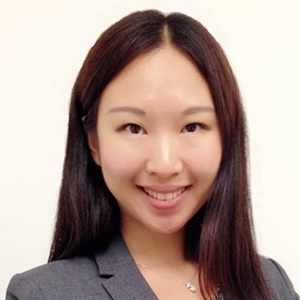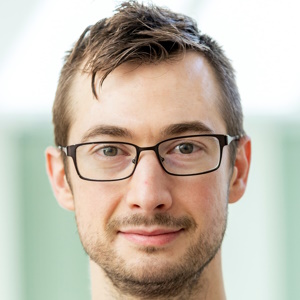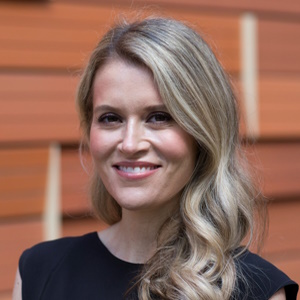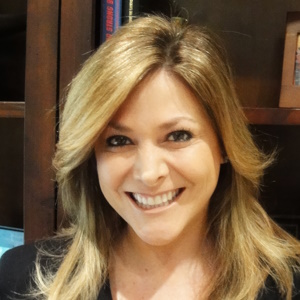Society Awards
To encourage all SAS members to participate in the important process of recognizing the accomplishments of our members, the nomination form is very brief. We encourage self-nominations as well as nominations of others. The SAS Awards Committee especially encourages creative nominations (i.e., for individuals or teams) and will recognize multiple awardees, as fitting.
Best Dissertation in Affective Science Award
This honor recognizes outstanding dissertation research conducted by SAS members who received their PhD (or other terminal degree) during the calendar year immediately preceding that year’s SAS meeting.
2023 Winners

Daphne Y. Liu
Stony Brook University
For her dissertation entitled “Interpersonal emotion regulation in current and remitted major depressive disorder: An experience sampling study” that was completed at Washington University in St. Louis under the mentoring of Professor Renee J. Thompson.
Description: Extensive evidence suggests that people with major depressive disorder (MDD) have difficulty regulating emotion on their own. It is important to examine whether these difficulties extend to how they utilize social resources to regulate emotion, or interpersonal emotion regulation (IER). This dissertation examined everyday IER among adults with current MDD, those whose MDD was in remission, and adults with no current or past psychological disorders (i.e., controls) using experience sampling method. It represents initial efforts to elucidate the characteristics and utility of everyday IER at different stages of MDD and informs clinical interventions.

Sean Dae Houlihan
MIT, Dartmouth
For his dissertation entitled “”A computational framework for emotion understanding”” that was completed at the Massachusetts Institute of Technology in September 2022 under the mentoring of Professors Rebecca Saxe and Josh Tenenbaum..
Description: To infer others’ emotions, people integrate perceptual information from expressions and contextual information from situations. Using a combination of behavioral paradigms and computational models, this dissertation investigated how people use event context (e.g. what happened and what could have happened) to reason about others’ emotions, expressions, actions, and experiences. A generative model simulated how people predict others’ emotions by abstracting mental state representations from social situations. The Bayesian framework captured how emotion predictions shape diverse cognitive inferences, including people’s interpretation of expressions and causal reasoning about world states. Formally modeling people’s social cognition afforded a way to learn the latent structure of emotion concepts. This work outlines a path for reverse-engineering human emotional intelligence.
Previous Winners
2022:
Hannah S. Savage, PhD, The Donders Institute for Brain, Cognition and Behaviour, Radboud University and Radboud University Medical Center. – “The neural basis of threat and safety reversal learning in healthy subjects and patients with social anxiety disorder” that was completed at the University of Melbourne under the mentoring of Professor Ben Harrison.
Meltem Yucel, PhD, Duke University – “’No fair!’: An investigation of children’s development of fairness” that was completed at University of Virginia in May 2021 under the mentoring of Professor Amrisha Vaish.
2021:
Jennifer K. MacCormack, Ph.D.,University of Pittsburgh – “Minding the body: The role of interoception in linking physiology and emotion during stress” – Completed at University of North Carolina at Chapel Hill under the mentoring of Professor Kristen Lindquist.
Early-Career in Affective Science Award
This honor recognizes scientific contributions and early evidence of impact for SAS members who received their PhD (or other terminal degree) fewer than 10 years prior to that year’s SAS meeting.
2023 Winner

Jonathan Stange
University of Southern California
Dr. Jonathan Stange is a leading early-career affective scientist who investigates cognitive and affective processes as they relate to risk for depression and suicide. Dr. Stange’s work integrates several methods and levels of analysis, including ambulatory psychophysiology of affect regulation in everyday life, and neural mechanisms of the regulation process. He has particularly focused on intensive person-centered modeling approaches to elucidate questions about how individuals vary over time, and in what contexts their risk is greatest. This work has implications for identifying personalized targets for intervention to improve regulatory success, and in doing so, to enhance resilience against problems such as depression and suicide. His work has been published in academic journals such as Journal of Abnormal Psychology, Psychological Medicine, and Human Brain Mapping.
Three representative publications:
Stange, J. P., Kleiman, E. M., Mermelstein, R. J., & Trull, T. J. (2019). Using ambulatory assessment to measure dynamic risk processes in affective disorders. Journal of Affective Disorders, 259, 325-336.
Stange, J. P., Hamilton, J. L., Fresco, D. M., & Alloy, L. B. (2017). Flexible parasympathetic responses to sadness facilitate spontaneous affect regulation. Psychophysiology, 54(7), 1054-1069.
Stange, J. P., Jenkins, L. M., Pocius, S., Kreutzer, K., Bessette, K., DelDonno, S. R., Kling, L. R., Bhaumik, R., Welsh, R. C., Keilp, J. G., Phan, K. L., & Langenecker, S. A. (2020). Using resting-state intrinsic network connectivity to identify suicide risk in mood disorders. Psychological Medicine, 50(14), 2324-2334.
Previous Winners
2022:
Daryl Cameron, PhD, Pennsylvania State University
Dylan Gee, PhD, Yale University
2021:
Katharine H. Greenaway, PhD, University of Melbourne
Mid-Career Trajectory in Affective Science Award
This honor celebrates the outstanding scientific impact of SAS members who received their PhD (or other terminal degree) more than 10 and fewer than 25 years prior to that year’s SAS meeting.
2023 Winner

Naomi I. Eisenberger
University of California, Los Angeles
Dr. Naomi Eisenberger’s research uses neuroimaging and health-relevant assessments to better understand the nature of emotional experiences in close social relationships as well as why social relationships are so critical for mental and physical health. Her research has explored the neural underpinnings of social pain—the painful feelings following social rejection or loss—and has shown that social pain relies on some of the same neural regions that are involved in processing physical pain. She has also explored the neural substrates associated with social connection—including the systems involved in giving and receiving social support from others. Her work also examines the bidirectional relationships between social relationships and health. For instance, she has shown that inflammation can enhance feelings of social disconnection and that certain prosocial behaviors can reduce threat-related responding including inflammatory responding. Her work has been published in top academic journals including Science, Proceedings of the National Academy of Sciences, and Nature Neuroscience. She is currently the incoming Editor-in-Chief at Emotion.
Previous Winners
2022:
Anthony D. Ong, PhD, Cornell University
2021:
Abigail A. Marsh, PhD, Georgetown University
Integrative Affective Science Award
This honor recognizes interdisciplinary teams of two or more scholars at any career stage who have together produced a series of works that cross or integrate the theories, perspectives, and methods of two or more academic disciplines or domains of research to advance affective science. Teams could include collaborations across institutions or collaborations within the same laboratory, as long as there is clear cross-field integration (e.g., a PI who is a cognitive neuroscientist and a post-doc with a PhD in computer science). Nominees are asked to describe the disciplines and specific expertise of team members and provide up to 5 works they have jointly produced. At least one member of the team should be a member of SAS.
Previous Winners
2022:
Jonathan Gratch, PhD, University of Southern California
The 2023 SAS Mentorship Award is bestowed to Dr. Wendy Berry Mendes. This honor recognizes her unparalleled devotion to the career development not only of her own mentees, but of countless others through contributions at the society level and beyond. Although only three letters of support were permitted, nearly twenty former trainees collaborated to support her nomination and all agreed that, through her mentorship and modeling, she has had a truly transformative influence on their development as psychological scientists and as individuals. In addition, many remarked – with absolute certainty – that they would not be here today, and myriad advances in affective science would not have been made if it wasn’t for Wendy’s mentorship.
2023 Winner

Wendy Berry Mendes
University of California, San Francisco
Wendy is not only a patient mentor that places a high priority on the well-being of her trainees, even years after they leave her lab, but she instills in her mentees a persistence and confidence that makes anything seem possible. Wendy is also well-known for having independently created a summer training program for undergraduates that has been running annually since 2005. One of her central goals with this intensive program is to provide opportunities for students who lack access to large, high-caliber research labs. Admission to her summer program prioritizes students at non-research-intensive schools, first-generation students, and students of color, showing her commitment to equity, diversity, and inclusion. Wendy gets to know all the interns personally—which is rare for a scholar at her level—she works hard to ensure that students have meaningful and rewarding experiences. That Wendy invested so much time in her mentees this early in their careers is a testament to her genuine passion for mentoring others in the field she loves so much. Overall, Wendy is not only an exceptional mentor, but she has been ringing the bell and blazing the path for underrepresented psychologists her entire career. Clearly, she has left an indelible mark on so many of us, and on the field as a whole, and she is most deserving of this award.
Previous Winners
2022:
Lisa Feldman Barrett, PhD, Northeastern University
James J. Gross, PhD, Stanford University
